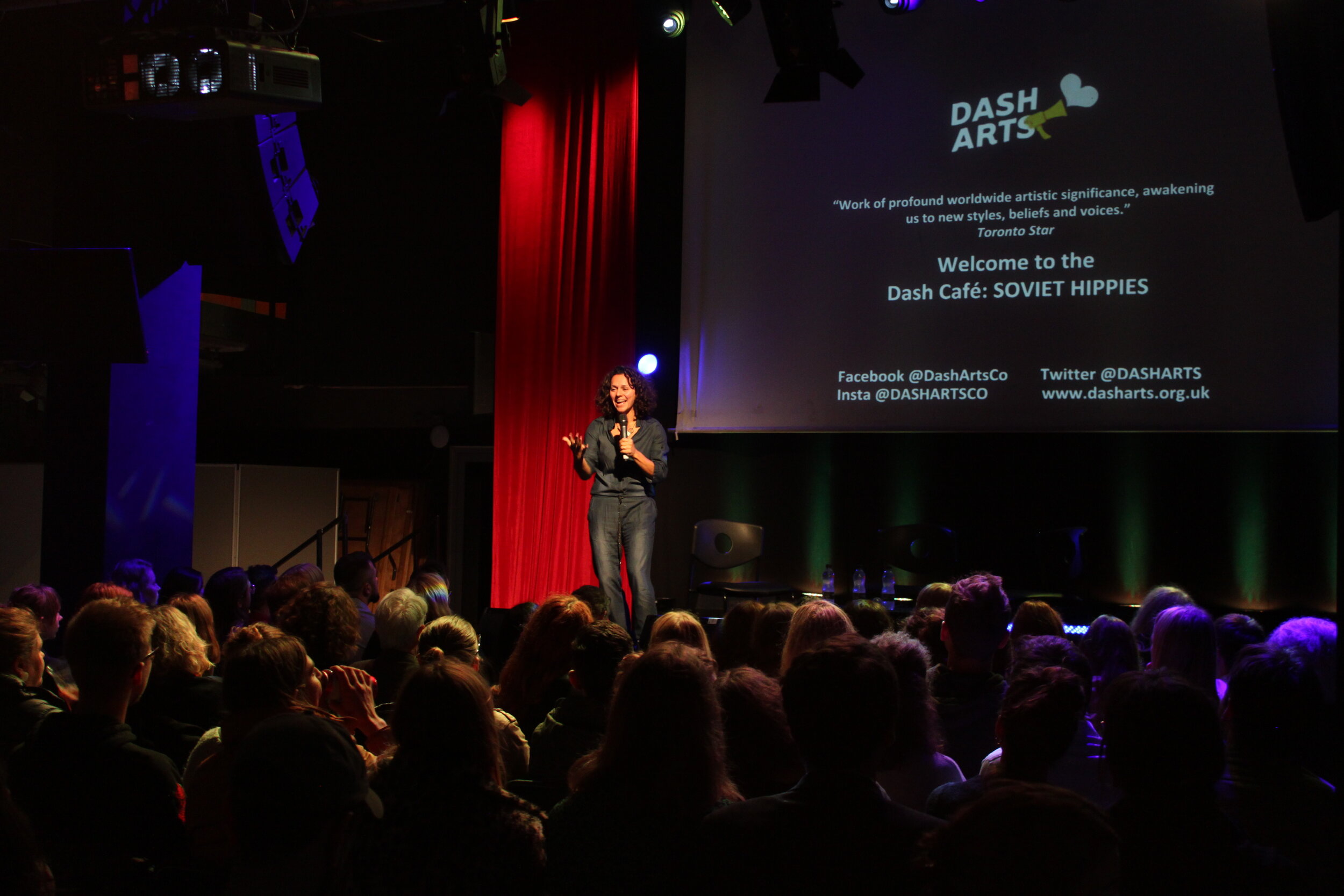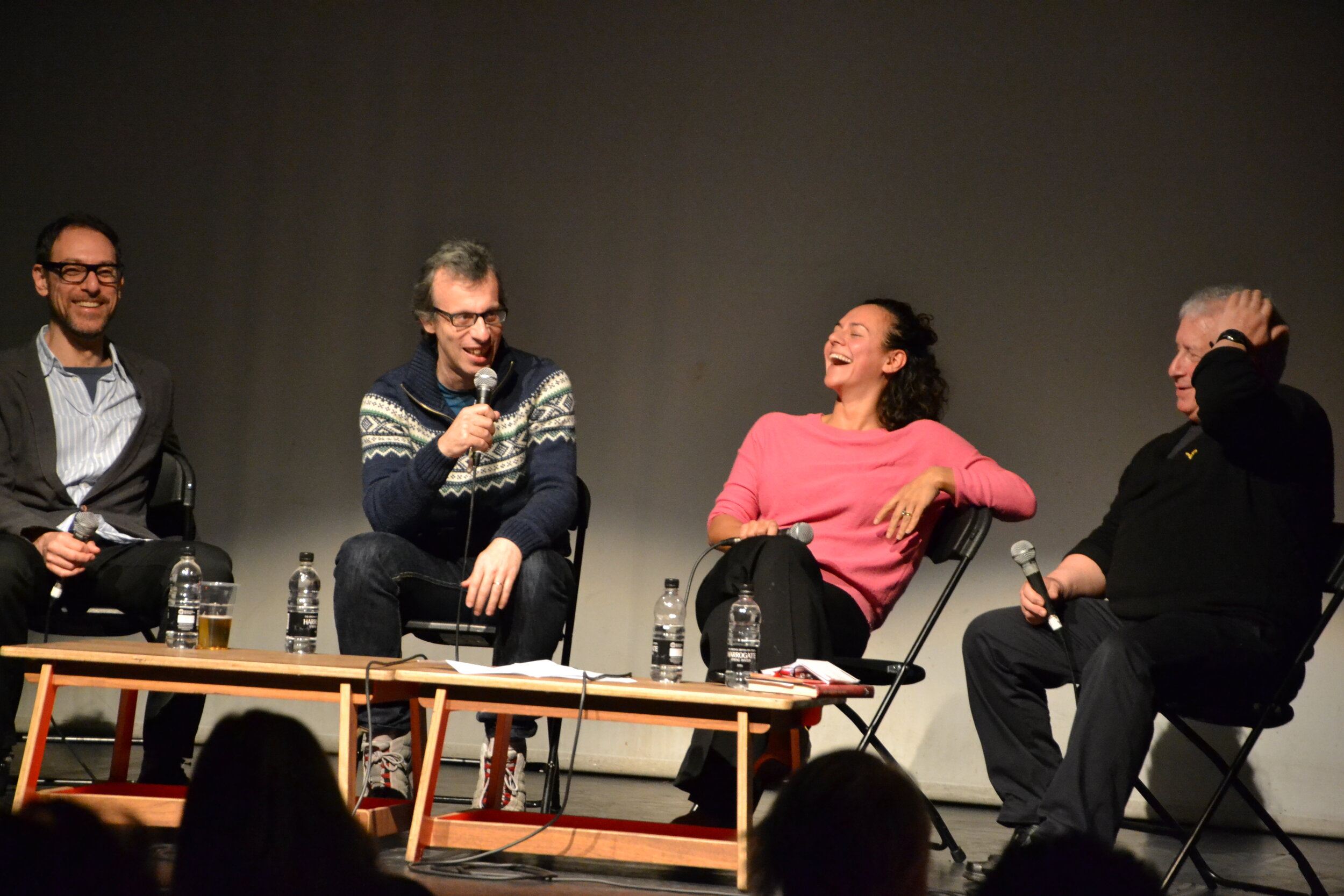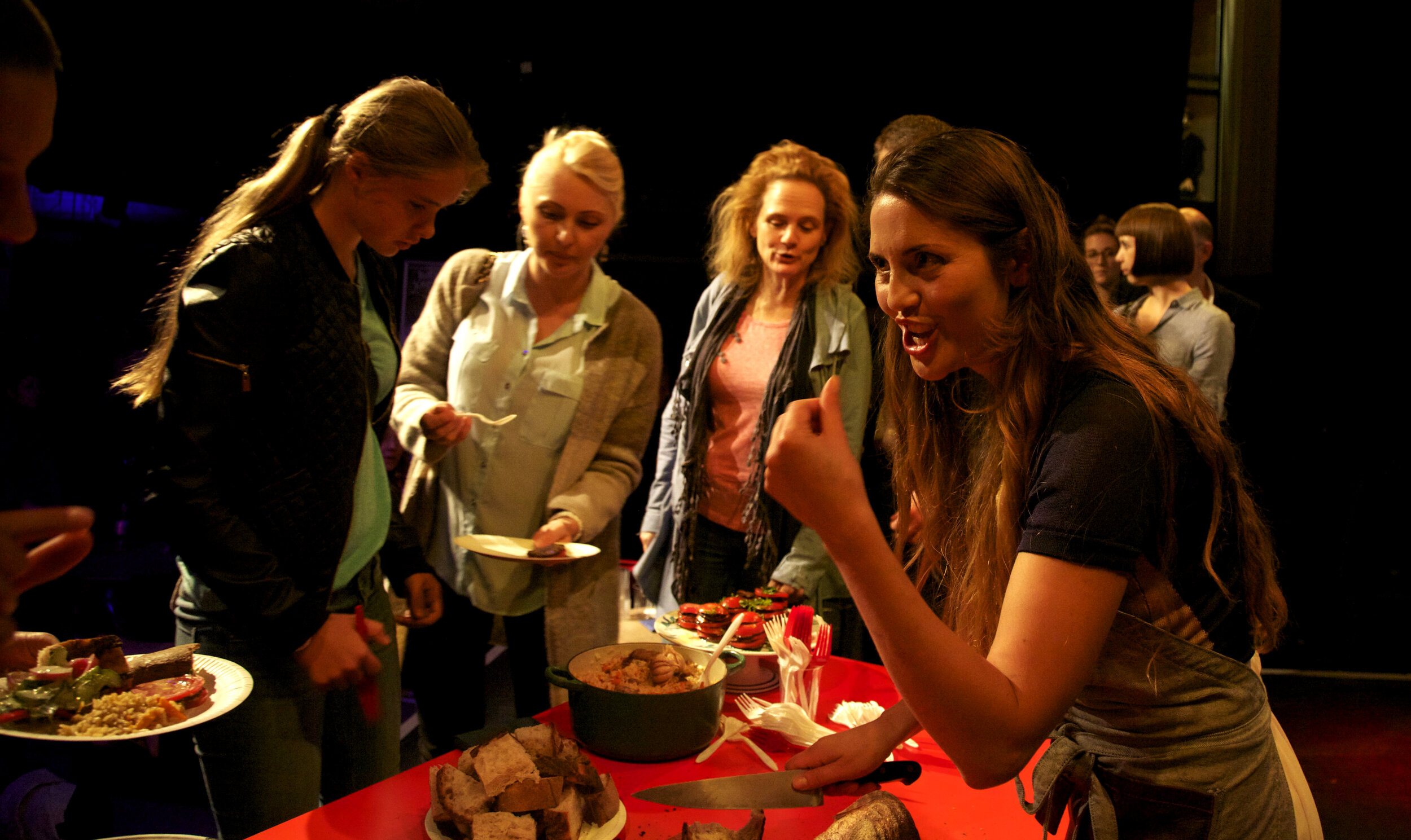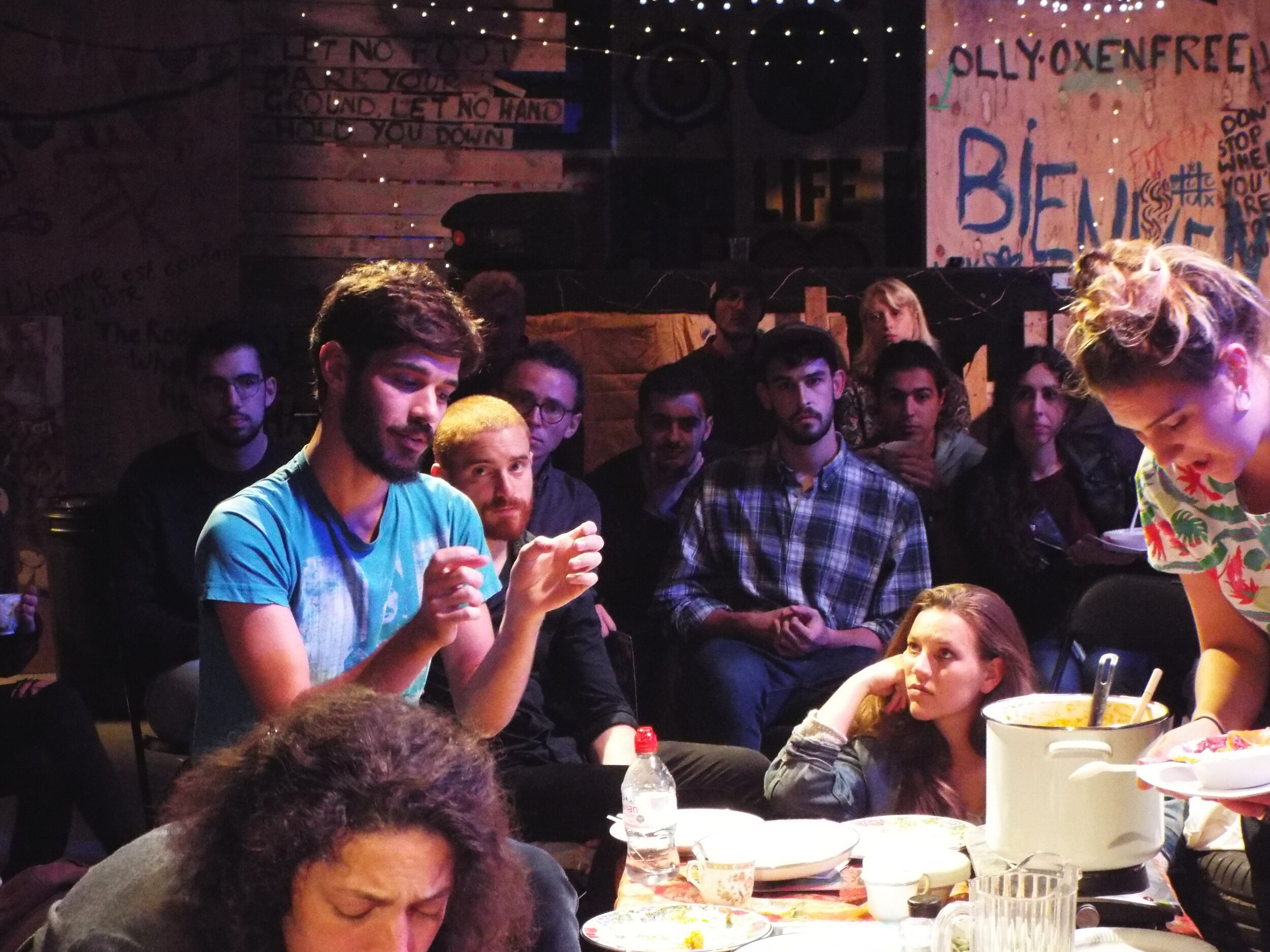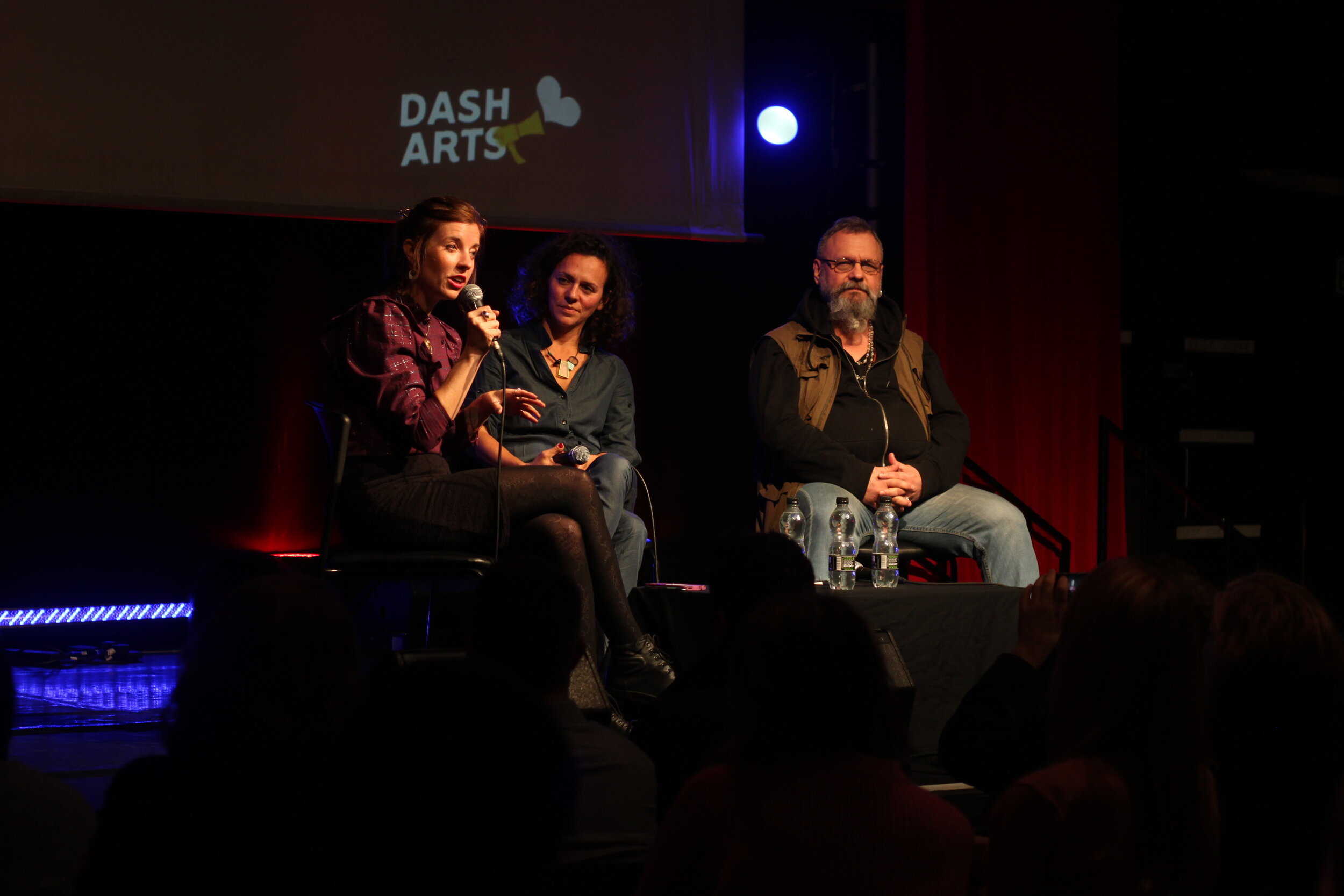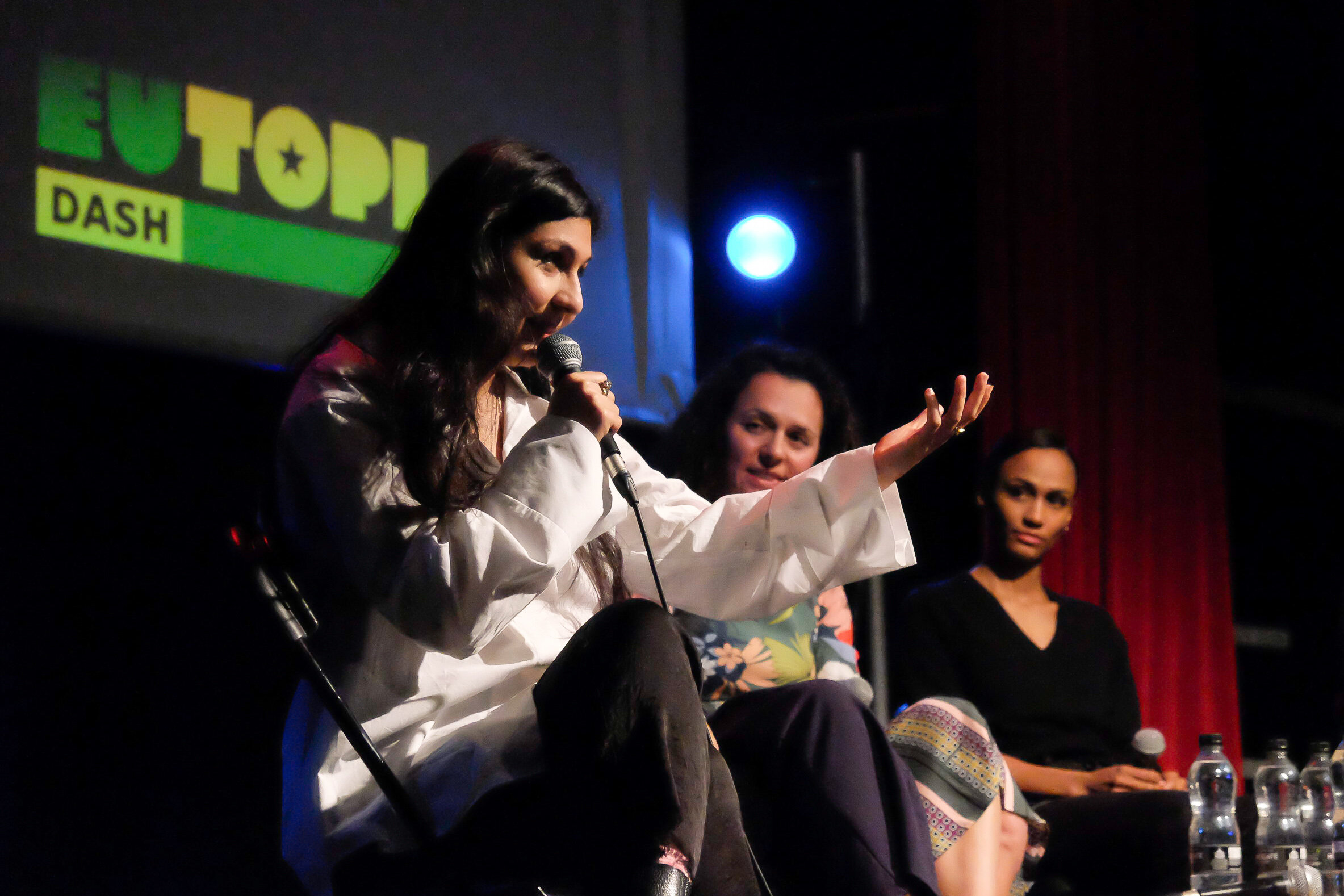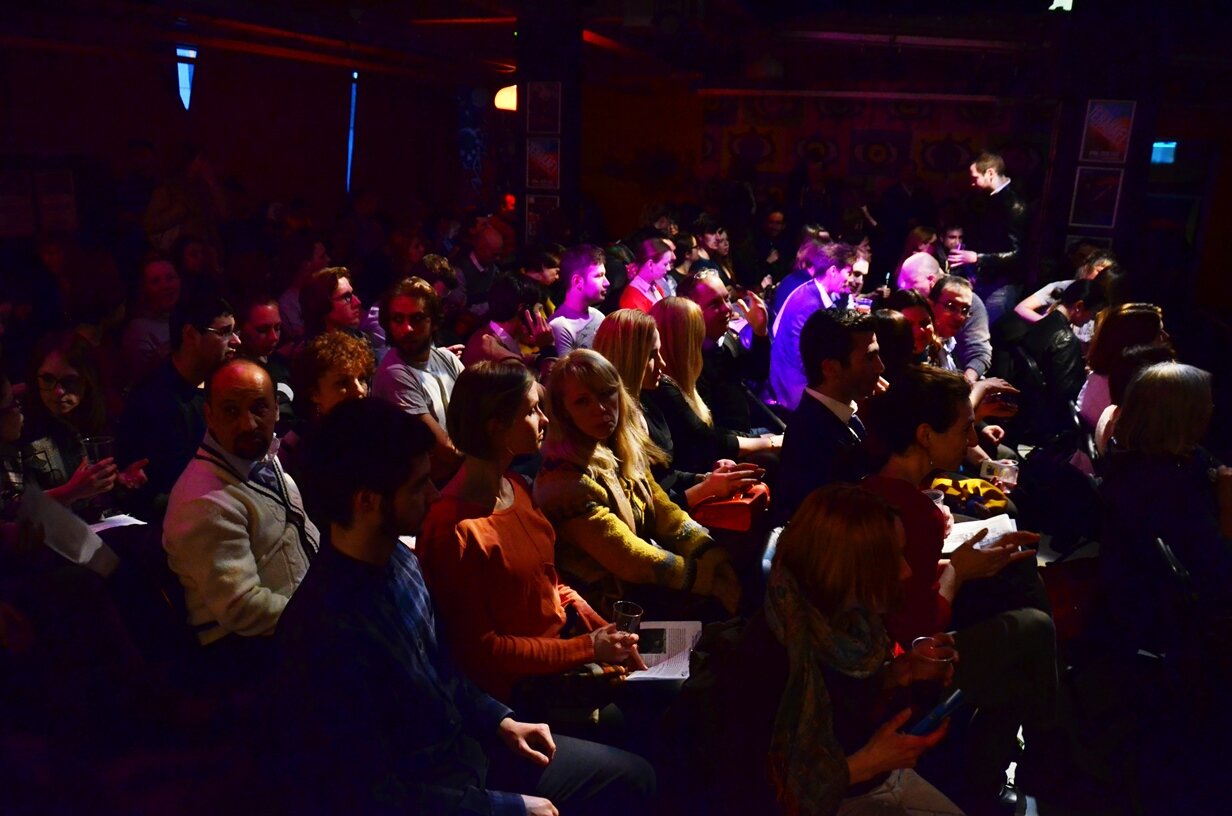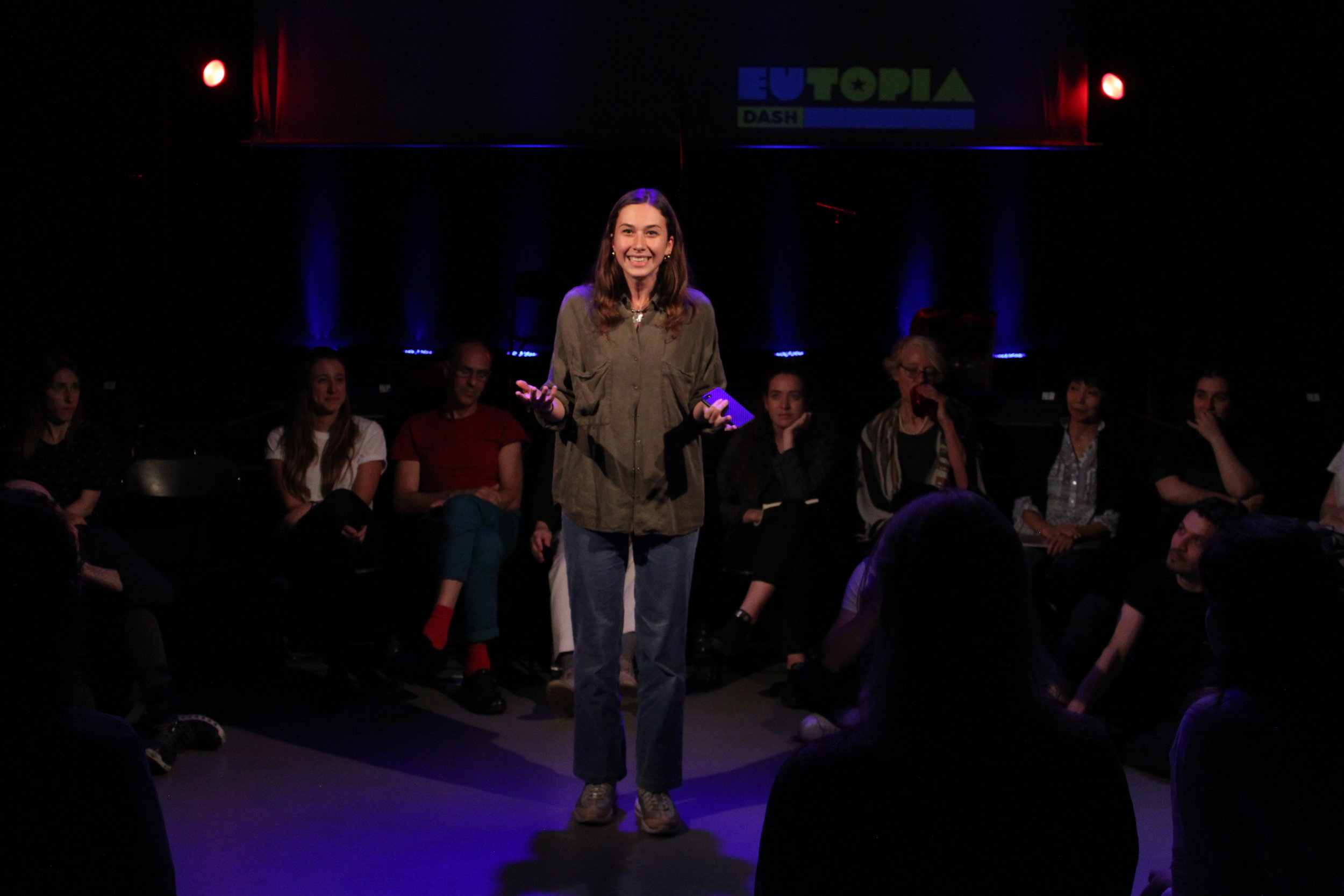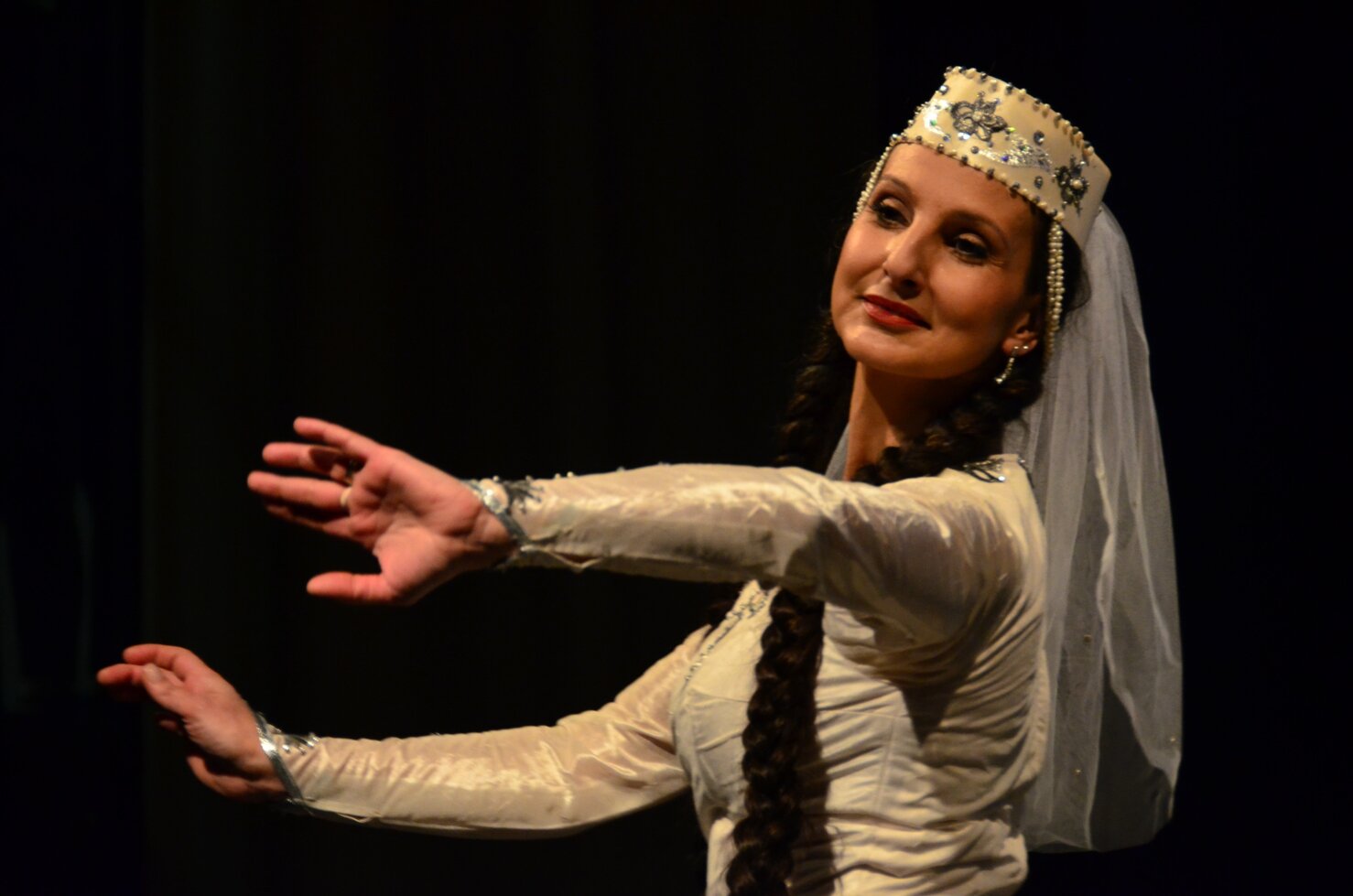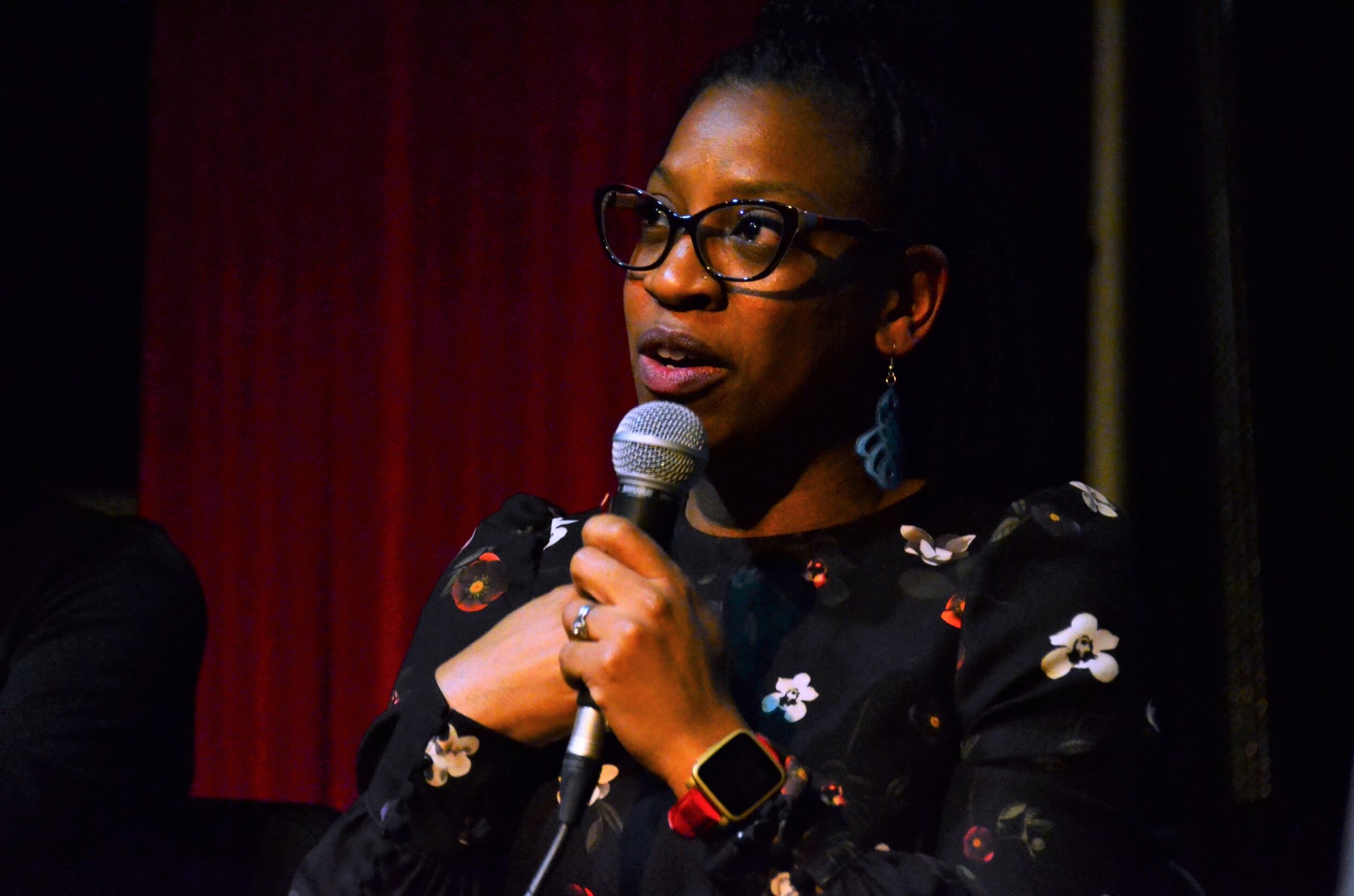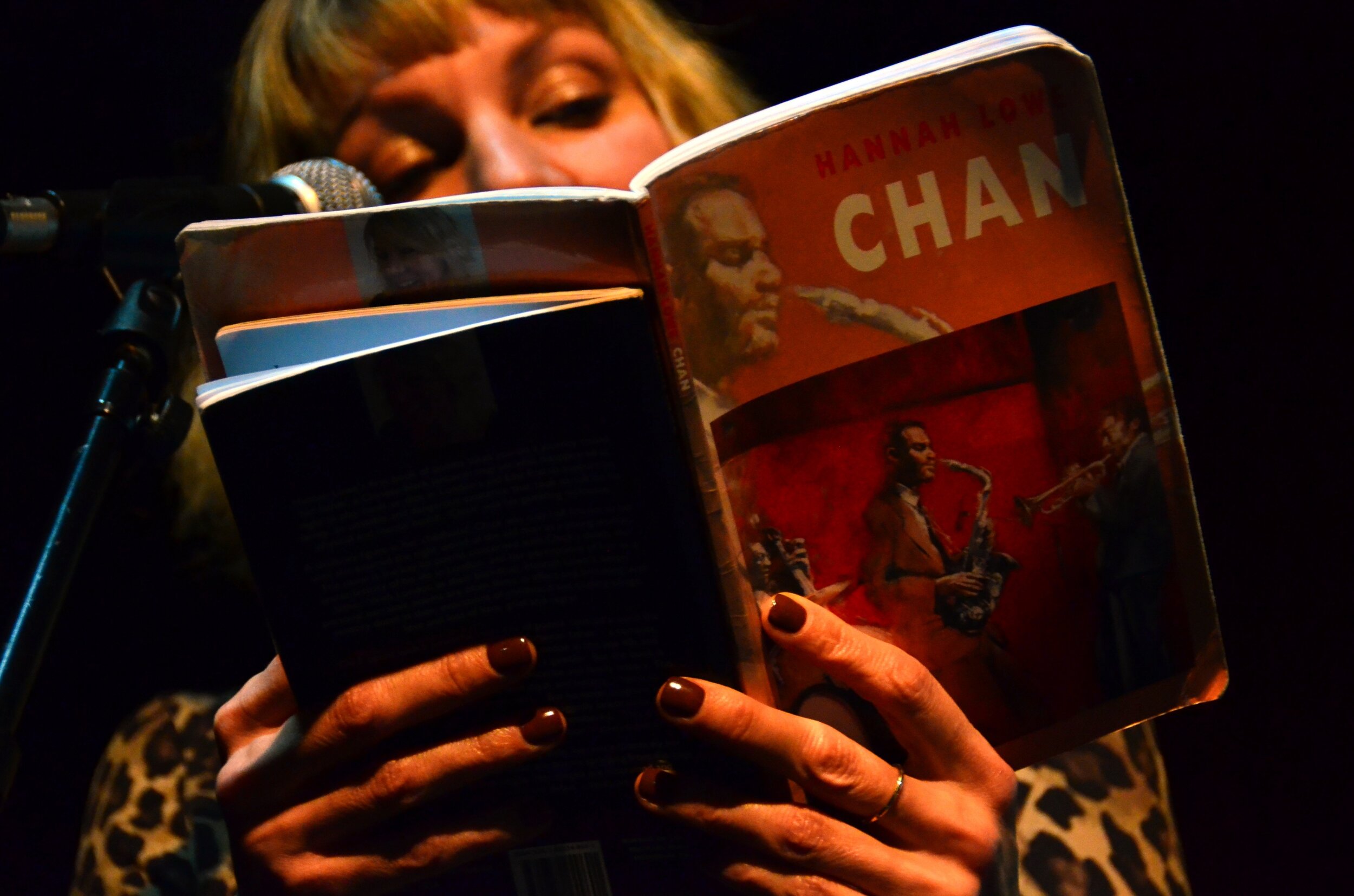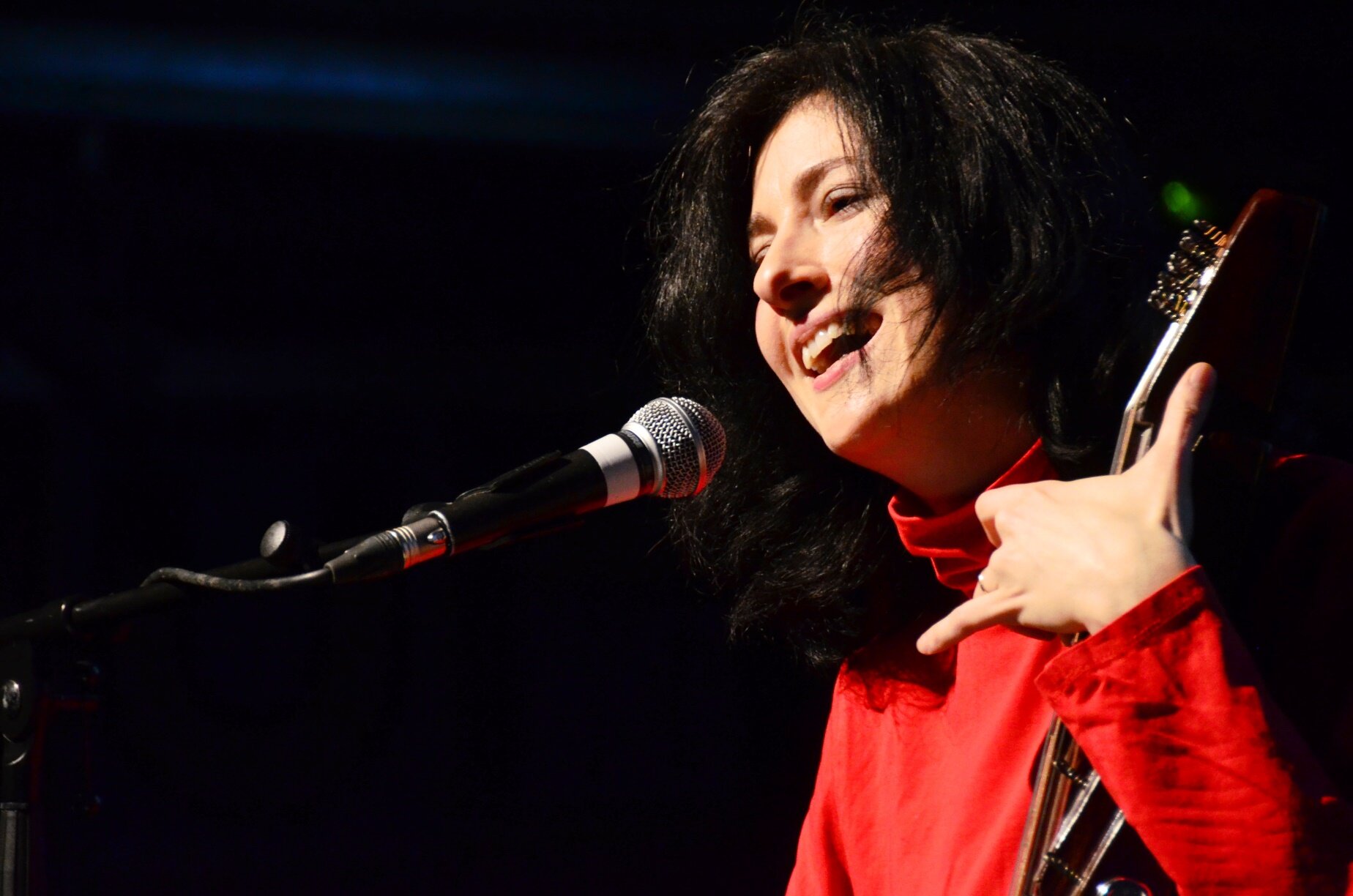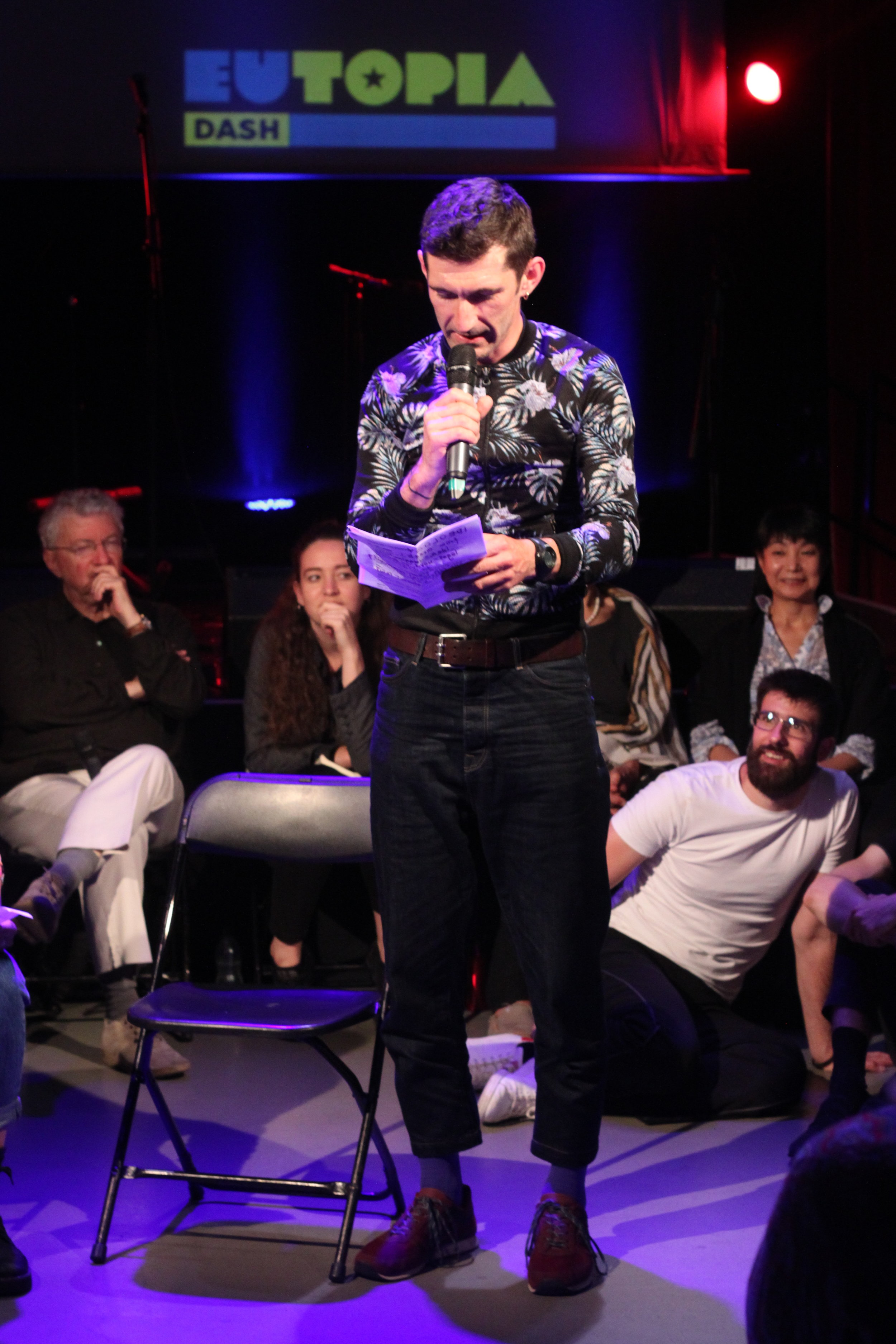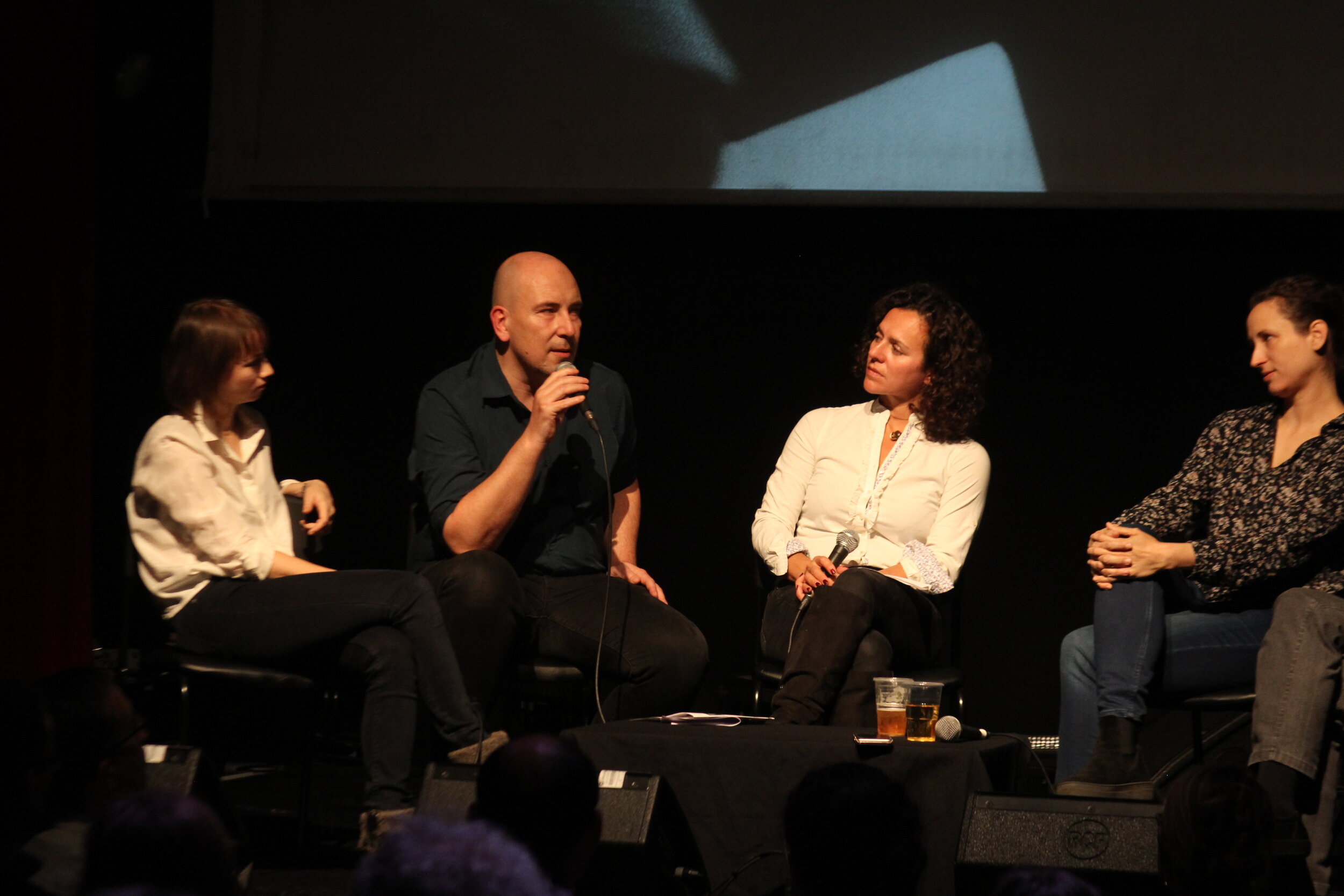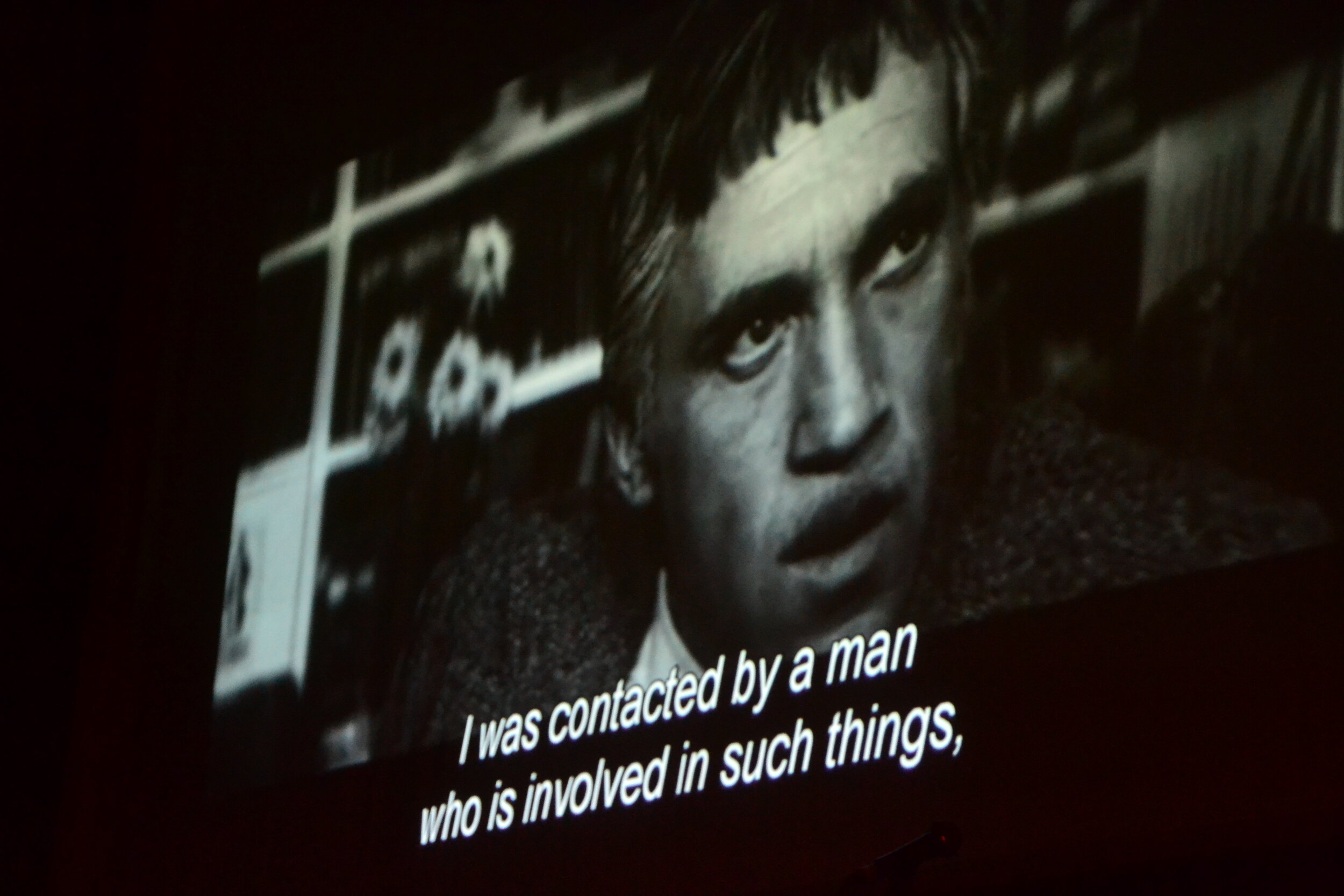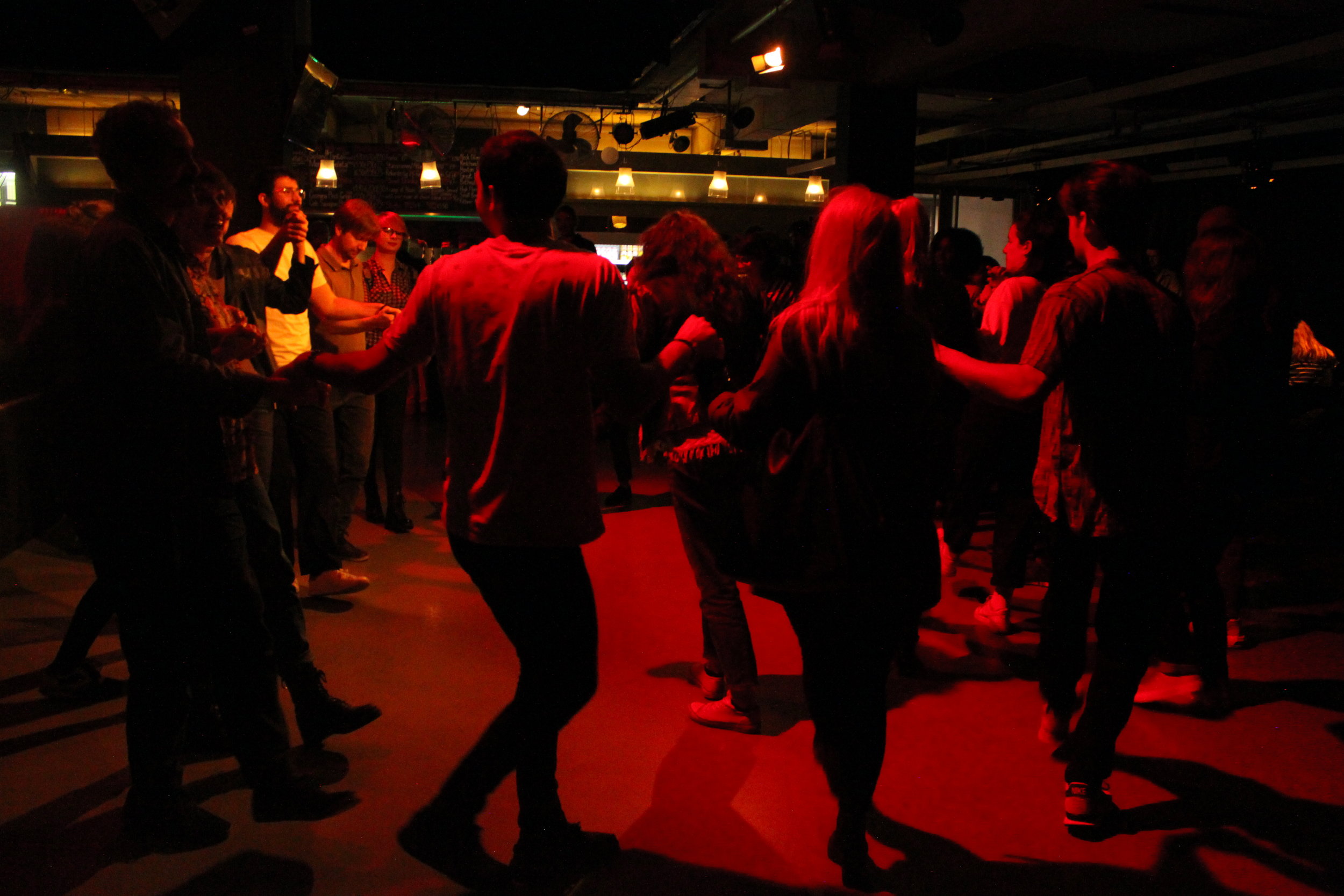100 Dash Cafés: Thoughts from our Artistic Director
In January 2020 we marked our 100th Café in EUROPEANS: Dora Maar at Rich Mix London. Artistic Director Josephine Burton reflected on the highlights of the cafés over the years, what she’s learned and how the cafés will look in the future.
This month, we turn 100. 100 Dash Cafes since they started as part of our Arabic Series in 2010.
They began as a complement to enhance the new work we were creating in our productions. The Café was an opportunity to share the amazing artists, ideas, books, films that I came across as part of our Series research. A look into the rehearsal room and behind the scenes. We’ve built an evening of conversation, live performance, film and music that has now run monthly since 2011 featuring over 700 artists, academics and journalists to audiences of over 10,000.
The Café became the shopfront of Dash Arts; a successful programme in itself: cross-disciplinary, international, and carefully walking a fine balance between professional production and informal participation.
I’ve relished the excuse to learn about something entirely new each month with our audiences and amazing speakers. As we moved into the Post Soviet Space, we were faced with 12 countries and more than 100 years of history to dig into. So much richness to explore.
“The café is unlike events available anywhere else: a truly British (empirical, ‘amateur’ in the best sense, informed) take on European intellectual cabaret, combining art and political thought in fascinating ways. A model of collaboration and exploration of ideas. Wide-ranging and welcoming; deserves to reach at least number 500.”
My highlights have been cafes on Soviet rock legends, Sami electronica artists, classical Arabic poetry and hip hop, live soundtracks to Georgian 1920s silent films, the changing face (and taste) of European cuisine, the impact of the war in Ukraine on contemporary artists and of the push for independence on Catalan film makers. We’ve featured high profile international journalists, writers, cooks, artists and thinkers including Oksana Zabuzhko, Orlando Figes, Philippe Sands, Olia Hercules and Timothy Garton Ash alongside emerging artists.
Along the way, I’ve learnt from our audiences – both during the official part of the evening and non-official post-show drinks at the bar. An unforgettable evening was the night we delved into the Prague Spring and the role the media played. Our 90 year old key Czech speaker, who had been live on TV as the troops rolled into Prague and forced off air at gunpoint in 1968, fell down a few days before the event and couldn’t make it. I turned the tables on our Café and we spent most of the evening listening to the audience tell the story of 1968 through their own lived experiences. It was hugely emotional and a real privilege to hear so many former Czechoslovakian reflect on such a pivotal moment in their lives.
“I love Dash Café’s ability to weave together varied disciplines with perspectives from different parts of the world, and to enable conversations that create a rich tapestry of cultural insights, reflections and discoveries. Looking forward to 100 more unexpected and inspiring journeys! ”
After the Brexit Referendum result in 2016, our plans changed. We had been planning to create work with artists from Latin America but it seemed more urgent to understand what it meant to be European and what we mean by Europe – particularly when everything seemed in such flux. Does leaving the EU change what it means to be European in the UK? Is Europe only a political entity? The list of questions grew extensive. We launched our current programme, EUTOPIA. Since 2018, we’ve been slowly tackling some of these questions through our Cafes and our wider programme: who is a European? What’s the relationship between the nation-state and Europe? And with its cities? And languages? We’ve looked at the questions through books and films, with amazing artists and comedians and through music, and significantly with a raft of brilliant people who have been mulling over these questions for years.
This year, our EUTOPIA cafes are taking a slightly different approach with Europeans. I wanted to spend the entire year, exploring what makes someone European – by looking at the some of the continent’s artists, musicians, actors, dancers, writers, filmmakers etc etc. Are there particular artists whose work has inspired people across national boundaries and across European languages to become a European icon? An artist whose work can be seen to have a legacy that has contributed to the creation of some form of European cultural narrative? And why?
We’ve included people on the list who are often overlooked – in April for example, we’re looking at how the ongoing process of decolonialisation in Holland has revealed some extraordinary artists who haven’t had the wider recognition they deserved and in May on the wonderful French speaking Belgian Roma musician Django Reinhardt who was pivotal in the creation of manouche music, gypsy jazz which has a huge ongoing influence on the electro swing scene. Next month, we’re taking the opposite approach by focusing on two better known authors George Eliot and Gunter Grass – whose work I felt I wanted to know better.
The Europeans season kicks off this month with Dora Maar – a phenomenal artist – photographer, social commentator, painter and surrealist poet. We’re using the current Tate Modern exhibition as a jumping off point and I’m thrilled that its curators from the original show at Paris’ Centre Pompidou are joining us. It’s a fascinating exhibition – particularly in the way that it tells Dora Maar’s own life story. We encounter her as an established artist before we meet her as Picasso’s Weeping Woman and the subject of his work. We hear her voice and see her own work. I’m looking forward to hearing the poet Victoria and musician Marouf Majidi reflect on this through the prism of their own work.
“My anticipation and excitement levels were always highest visiting Dash Arts (from South Norfolk) than for many other venues in ‘the Smoke’... such an eclectic, in your face atmosphere always thick with that positive coolness and generic love often emulated, but never bettered than down the East End.”
We’re still building our list of EUROPEANS. We’d love to hear who you’d put on your list – people whose work defies national boundaries but you feel is quintessentially European? Artists whose work continues to inspire? Artists whom you’d like to learn more about? Whom you feel should be appraised more critically?
Please do let us know - 2020 is not entirely programmed yet.
You can contact us on info@dasharts.org.uk with thoughts, reflections and ideas.

